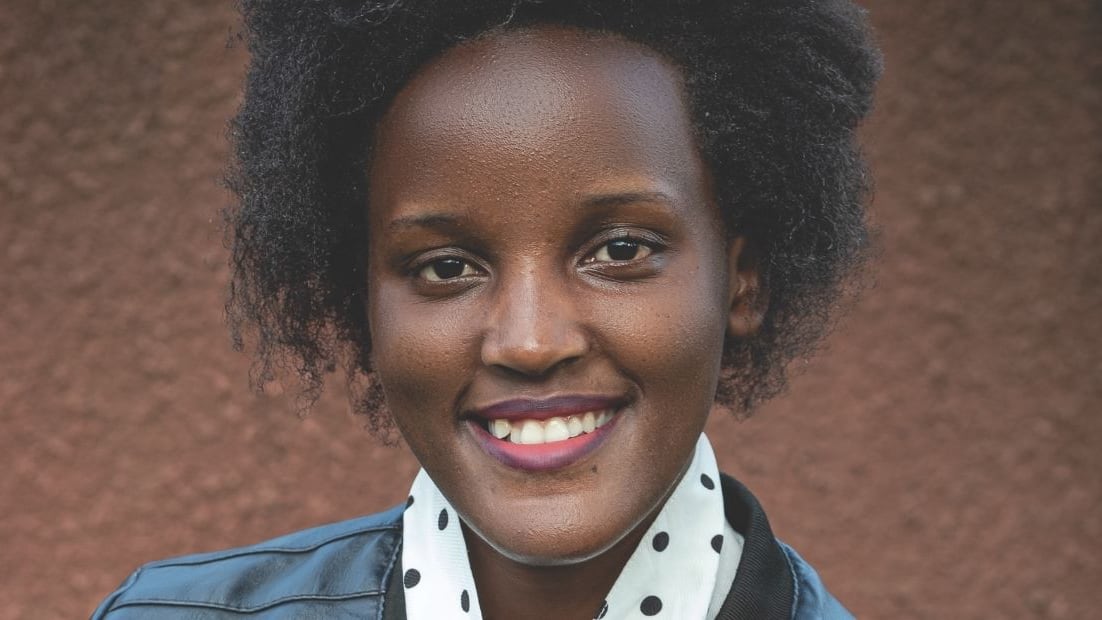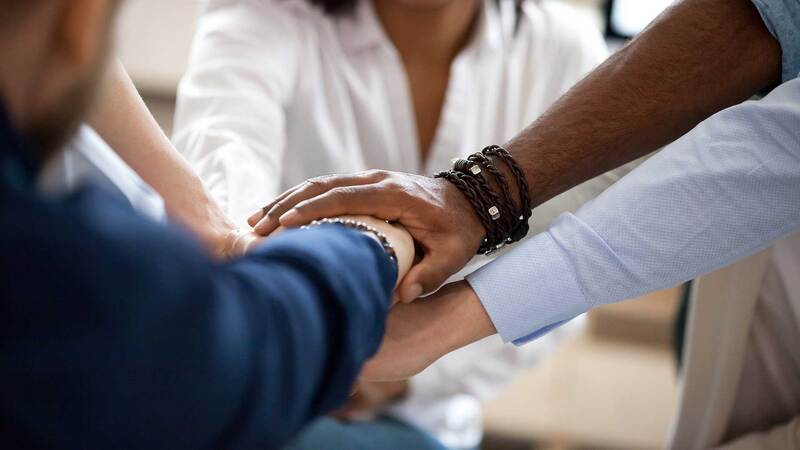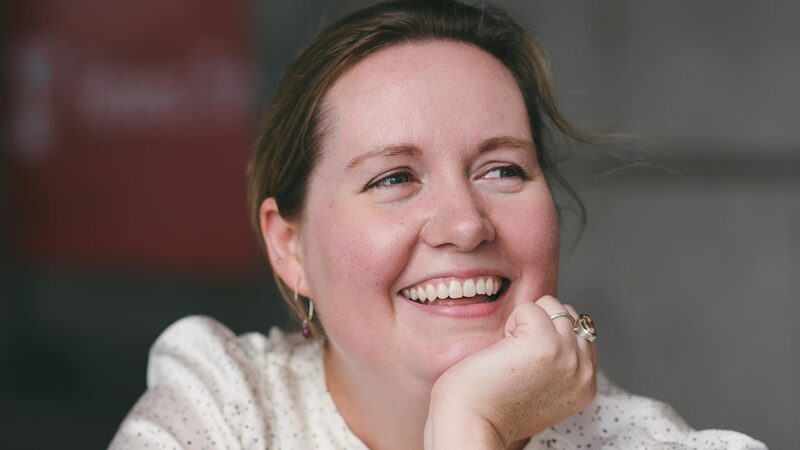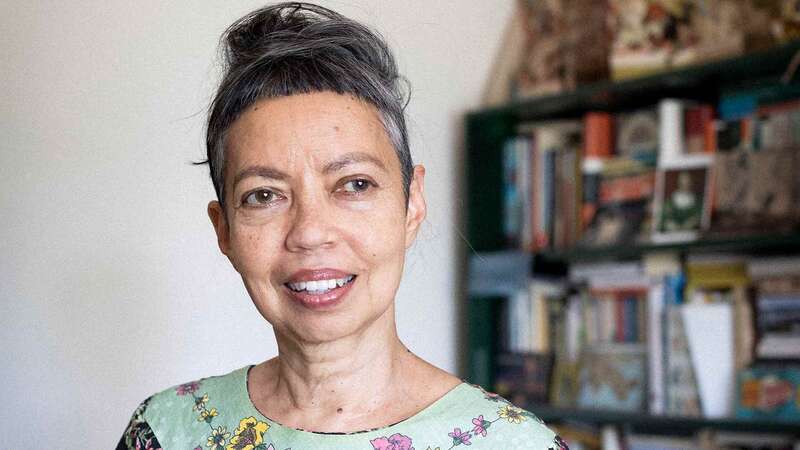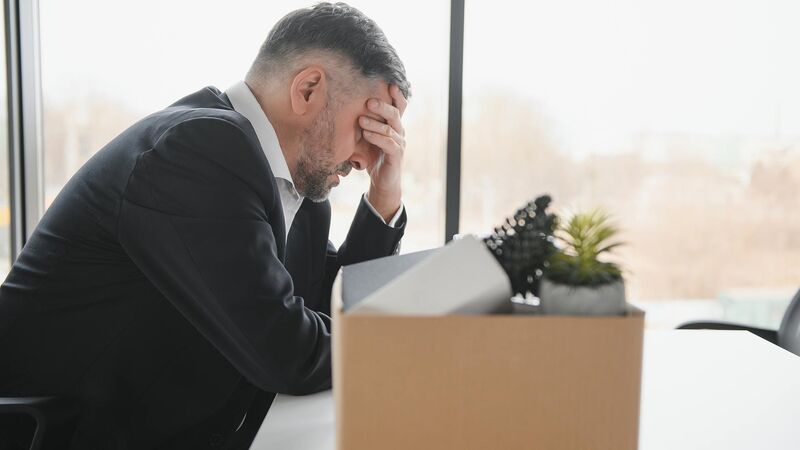You are viewing your 1 free article this month. Login to read more articles.
Vanessa Nakate | 'Climate change is pushing millions of people into extreme poverty and leaving them with nothing'
 Caroline Sanderson
Caroline SandersonCaroline Sanderson is a non-fiction writer, editor and books journalist. Her books include a travel narrative, A Rambling Fancy: in the F ...more
Vanessa Nakate’s manifesto for change is a wake-up call that will redefine the debate on climate change

Caroline Sanderson is a non-fiction writer, editor and books journalist. Her books include a travel narrative, A Rambling Fancy: in the F ...more
For the past three years, the voice of the now 24-year-old Ugandan climate activist Vanessa Nakate, pictured holding a megaphone on the front of her forthcoming book A Bigger Picture: My Fight to Bring a New African Voice to the Climate Crisis (One Boat), has been sounding out loud and clear on the ways in which climate change is already profoundly affecting people both in her own country and elsewhere in Africa. Speaking alongside fellow activists including Greta Thunberg at the Youth4Climate event in Milan at the end of September, she said: “Many Africans are losing their lives and countless more have lost their livelihoods.” Of Nakate’s activism, Thunberg has said: “In this moment of intersecting crises, Vanessa continues to teach a most critical lesson. She reminds us that while we may all be in the same storm, we are not all in the same boat.”
As A Bigger Picture makes clear, the substantial platform Nakate now has for her activism has been hard-won. In January 2020, the Associated Press (AP) news agency cropped Nakate out of a photo which pictured her alongside Thunberg and three other white European climate activists at the World Economic Forum in Davos. She writes that she felt “personally humiliated as though I was invisible”, while being struck by the “cruel irony of the exclusion of the only African from the photo”: while the African continent has 15% of the world’s population, it is responsible for only 2%–3% of global energy-related carbon dioxide emissions.
This episode, while shameful, became the catalyst for a huge increase in Nakate’s profile and social media following because she chose to tweet her video response to her exclusion. “If I hadn’t spoken up, who would ever have found out?”, says Nakate when she speaks to me via Zoom from her home in Kampala. “Still, I didn’t have many followers at the time so I was really surprised that so many people were so supportive and helped to push my activism to a much bigger audience.” A Bigger Picture is set to increase her following still further, and rightly so after a summer when news has been dominated by reports of extreme weather events in the Global North, but with barely a word devoted to those in the Global South, and to the voices and stories of people of colour who are bearing the brunt of them. As Nakate puts it: “We are on the front line, but we are not on the front page.”
Changing the debate
Nakate’s climate activism began in 2018, in between finishing high school and her graduation. “I wanted to do something in my community, something that would bring positive impact, but I had no idea what. So I started to research into the challenges people are facing in my country and I was really surprised to find that climate change was the biggest and greatest threat. I had experienced floods myself but I hadn’t made the connection to the climate crisis. I started to realise that the crisis was here and that extreme heat and extreme rainfall are threatening food and water availability for the people of Uganda, a country heavily dependent on agriculture as a source of income—especially in rural communities.” Conversations with her Uncle Charles, who is in his forties, confirmed that such extreme weather patterns were a recent development. And from him she also learned about a climate activist called Greta Thunberg.
A shy person by nature, and the product of a girls’ boarding school where she had been taught to be demure and respectful of authority, Nakate confesses that she initially felt “really scared” to go out on climate strike. She was also fearful of arrest, given that public demonstrations are not freely tolerated in Uganda. Eventually she decided she had to feel the fear and act anyway. One Sunday in early 2019, she and five of her siblings and cousins stood with placards reading “Climate Strike Now” and “Nature is Life” for half an hour in each of four busy locations across Kampala. Despite initially attracting only a small amount of attention, Nakate continued to strike every Friday (as Thunberg and others were doing) and sometimes protested on Sundays as well. Through such persistence, as well as posting on social media and giving TheBookseller.com media interviews, she gradually gained an audience for her activism. In the autumn of 2019, a big breakthrough came when she was invited to the UN secretary-general’s Climate Action Summit in New York (her first trip abroad and not an entirely satisfactory experience, as she relates in her book), and then to COP25 in Madrid, where she met Thunberg in person for the first time, along with other young climate activists from around the world.
Fast-forward to autumn 2021, and there are plans for Nakate to attend COP26 in Glasgow, along with as many activists from the Global South as possible, although she reveals it has been an immense challenge to arrange visas, travel and the necessary accreditation in the wake of the pandemic. Given that in her recent speech to the Youth4Climate event she called for, “No more empty promises. No more empty summits. No more empty conferences”, I ask her how she thinks we can ensure that governments stop talking and start acting. “There’s a huge responsibility on our leaders to take drastic climate action. I can do the protests, I can sign petitions, I can write a book. But I am not in the position to take the right decisions and to make the right policies happen. We are going to do everything we can to get that, through organising and mobilising as much as possible.”
In A Bigger Picture, Nakate emphasises the importance of the UN’s Sustainable Development Goals, established in 2015 as a roadmap to the future that recognises the intersectionality of the challenges that face us. It is her firm belief that the climate emergency is only a symptom of a far larger crisis. “Climate change is pushing millions of people into extreme poverty and leaving them with nothing, leaving them homeless. It’s important for people to start understanding the connection of these issues, to understand that we won’t be able to eradicate poverty without climate justice,” she tells me. “I think we all need to start understanding the intersection of these issues.”
Among Nakate’s calls to action in her excellent book— which takes in economics, gender and racial equality, education, the media and North-South power relations, and concludes with actions we can all take to help resolve the climate crisis—is a striking appeal for us to “re-educate ourselves about what we mean by ‘development’”. Nakate, a warm and engaging interviewee, tells me that she remembers the national rejoicing in Uganda that accompanied the discovery of oil in Lake Albert when she was in primary school. “We were taught how much this discovery was going to benefit the country and individuals. But this short-term pattern of development has been very harmful to the planet, to biodiversity and to people who are now suffering the long-term impacts of the climate crisis. We need a clean, sustainable, healthy, liveable kind of development that ensures that people’s lives, and animals and the planet, are respected. Before any more destruction is done."
Book Extract
My message was, and is, straightforward: people in Uganda, in Africa, and across the Global South are losing their homes, their harvests, their incomes, even their lives, and any hopes of a liveable future right now.
This situation is not only terrible; it’s also unjust. Although the African continent has just 15 per cent of the world’s population, it is responsible for only between two and three per cent of global energy-related carbon dioxide emissions. The average African’s greenhouse gas emissions are a fraction of those of people living in the US, Europe, China, the United Arab Emirates, Australia, or many other countries. An Oxfam study concluded that a person in the UK will have emitted more CO2 in the first weeks of 2020 than someone in Uganda or six other countries will in the whole of one year.





